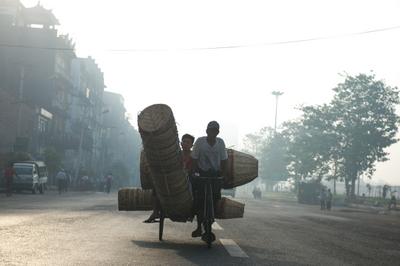The challenge now is to keep the reform momentum going without causing macroeconomic or political instability.
Myanmar’s recent exchange rate reform was just the first salvo in what many anticipate will be a steady effort to overhaul the economy and build incentives and institutions for sustained and inclusive growth. The danger is not that Myanmar will do too little, but that it may be asked to do too much. And the government may be only too willing to oblige, especially if it believes that doing so will accelerate the removal of remaining sanctions or eliminate external arrears (or both). A rush to reform may cause instability that reform opponents could seize upon to rewind the clock.
The unification of Myanmar’s official and market exchange rates is a fundamental change. But a large proportion of the population remains desperately poor, without a social safety net to help them survive further policy-induced economic shocks. What must follow, therefore, are reforms that lead to ‘quick wins’ in income generation and poverty reduction. This will instil the belief in the country that economic reforms can bring prosperity and will build a constituency for further change. In modern economic jargon, the government should focus on reforms that loosen the binding constraints to growth.
There are three immediate constraints to growth: inadequate finances for government and infrastructure; excessive licensing and controls that suffocate private initiative and breed corruption; and tariff and non-tariff barriers that inhibit trade in manufacturing and agricultural products. Two further initiatives — natural resource management and international cooperation — are also needed to ensure growth is sustainable and inclusive.
The first priority is to develop a financially viable government. This will allow the state to increase certainty by financing local government and military organisations properly and transparently through the budget. That way, the government can help curb arbitrary attempts by these actors to extract revenues from the population. Financial viability will also help provide resources to build much-needed infrastructure, which in turn will bring down production costs and increase international competitiveness. Ports and rural roads to facilitate non-gas production and exports will be especially important.
The second priority is to allow for increased economic activity by private entrepreneurs that is free from state or military patronage — and to give banks increased freedom to lend to such actors, especially those in the agricultural sector. Formal laws governing economic activity either do not exist or are not followed. And government action currently tends to be as distortionary as it is unpredictable. The government has to recognise that prosperity through increased investment and production will only occur if the property rights of private investors are respected and protected.
Third, the government should eliminate the broad variety of import and export restrictions and further promote FDI. Doing so will eliminate the supply bottlenecks that are throttling economic activity and jumpstart non-oil and gas export production.
The fourth priority is to develop Myanmar’s natural resources without falling prey to macroeconomic risks or incurring local environmental and social problems. Myanmar would do well to reinvest rents from exhaustible resources back into reproducible capital. This is all the more important in Myanmar, where the bulk of the country’s natural resources are located in ethnic minority regions. Without adequate safeguards, these regions could see their natural resources depleted rapidly with little long-term development to show for it. One way to avoid this is to transfer natural resource rents into a transparent sovereign wealth fund with watertight governance and clear rules. The fund’s long-term proceeds could be used for a sustainable level of public investment, including in the ethnic minority regions.
And the fifth priority is to work with the international community to assist in clearing debts in arrears owed to the Asian Development Bank and World Bank so that Myanmar can once again tap these institutions for concessional resources. Myanmar’s external debt arrears are about US$5.5 billion. The government clearly does not have the resources to pay off these debts, so it will have to harness the goodwill of bilateral donors to do so.
Even when reduced to five essential priorities, the reform challenge seems daunting. But commitment to making the necessary changes will help build momentum. Reforms need to be deliberate, well thought through and appropriate to the country’s implementation capability. The international community needs to exercise patience, coordinate advice and resources, and work with — not against or around — Myanmar’s institutions, without overburdening them.
While setbacks will inevitably occur, the international community should be in it for the long haul. Myanmar’s strategic location and its natural resource wealth give it advantages few countries have. There is a unique opportunity at hand to use these advantages to build strong foundations for sustainable and inclusive growth.
Vikram Nehru is Senior Associate in the Asia Program and Bakrie Chair in Southeast Asian Studies at the Carnegie Endowment for International Peace. An earlier version of this article was first published here by the Carnegie Endowment for International Peace.

